Scalper1 News
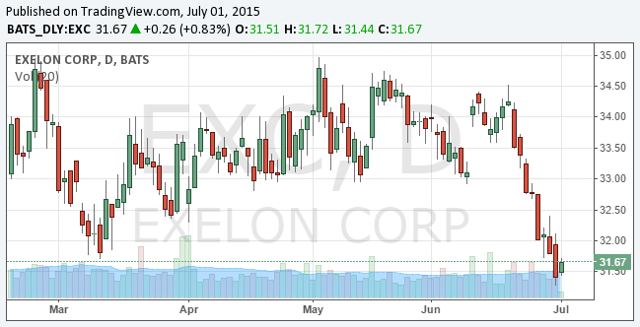
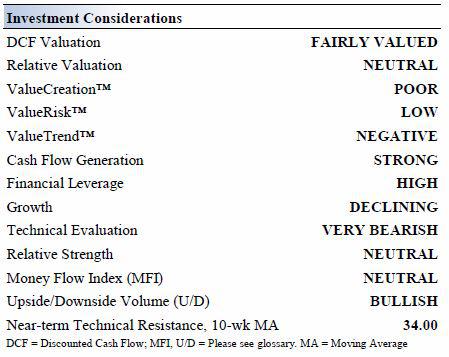
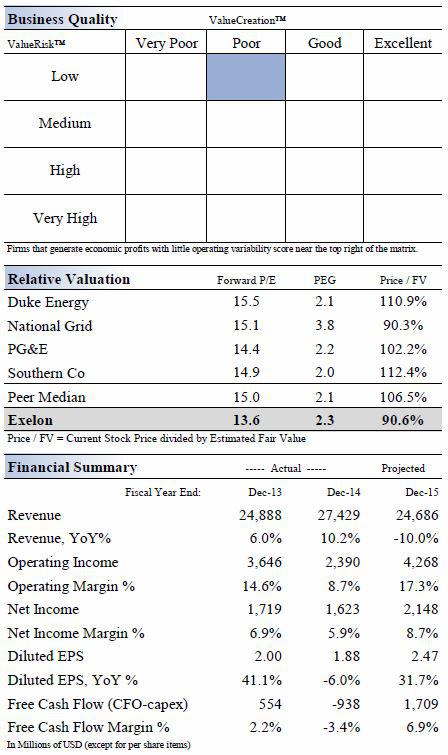
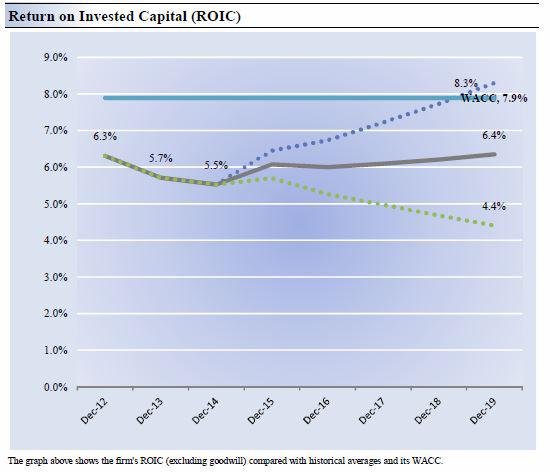
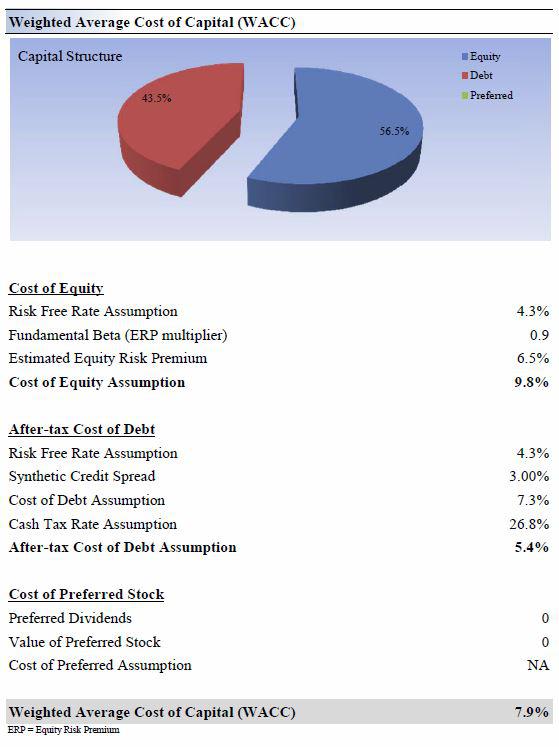
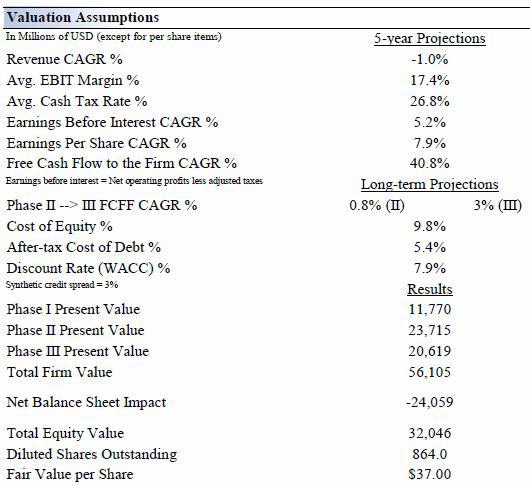
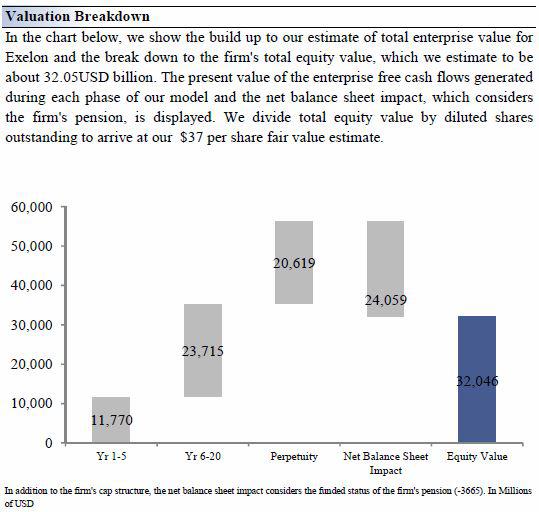

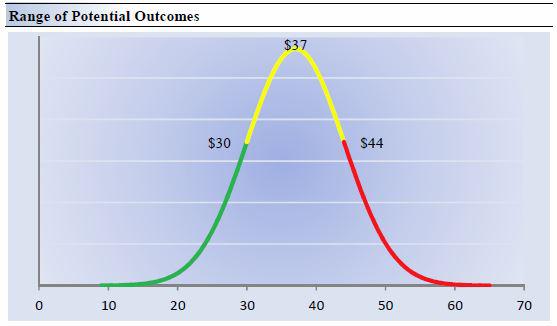
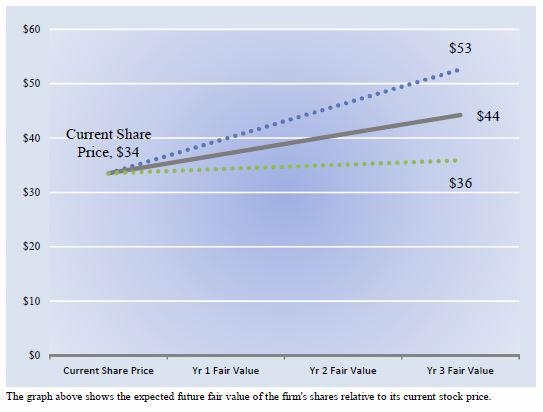
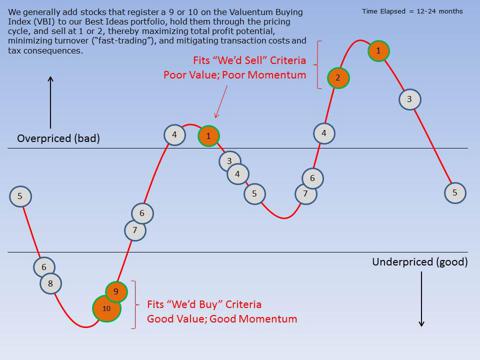
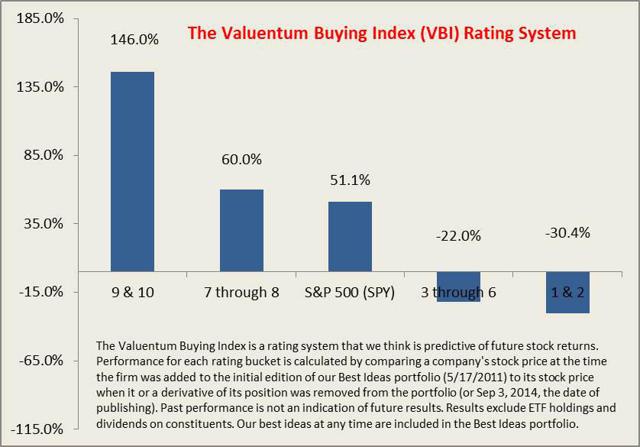 Summary Exelon has one of the largest retail customer bases among energy providers in the US. Though Exelon boasts a nice dividend yield, dividend growth investors have been disappointed and rightfully so. The firm is in the process of acquiring energy provider Pepco, a potentially lucrative move. Let’s take a look at Exelon’s recent performance and derive our fair value estimate for shares. By Paul Tait (click to enlarge) Exelon (NYSE: EXC ) is one of the US’ largest competitive energy providers and perhaps is best known for operating the largest nuclear fleet with over 19,000 megawatts (nearly enough energy to power 19 million homes). That’s incredible! No matter how much we like the company, however, its dividend payouts haven’t been electric in recent years, to say the least. We said Exelon’s dividend wasn’t on steady ground in the past, and we strongly encourage investors to not simply write off utilities’ dividends as safe . First Energy (NYSE: FE ) was another utility that cut its dividend, and Exelon’s Dividend Cushion ratio remains a lackluster 0.7 (anything less than 1 is unexciting). In recent news, Exelon is in the process of acquiring Washington, DC-based utility-holder Pepco. The deal would strengthen the firm’s hold on the mid-Atlantic utility market, and should the acquisition go through, Exelon would control nearly 80% of Maryland’s electric consumers. Critics are worried about price hikes, but that’s why investors like utilities in the first place: they’re legal monopolies. In this piece, let’s dig deeper into Exelon’s investment considerations and derive our fair value estimate of the firm’s stock price. Exelon’s Investment Considerations Investment Highlights • Exelon is a large competitive energy provider, with one of the largest retail customer bases in the US. It owns approximately 35,000 megawatts of power generation, including the nation’s largest nuclear fleet of more than 19,000 megawatts. It is also the US’ second-largest regulated distributor of electricity and gas. • Exelon is an important reminder as to why utility dividends aren’t always safe. Though many utilities boast regulated returns, their operations do not lend themselves to substantial financial flexibility. Credit quality will always take priority over dividend payments at key credit thresholds. The Dividend Cushion ratio considers both future free cash flows, the capital intensity of the business, as well as future cash dividend payments in coming to a comprehensive assessment. • The merger of Exelon and Constellation Energy has created one of the lowest-cost power generation fleets in the US. The tie-up offers opportunities for O&M synergies, portfolio optimization, and overhead savings. More than half of the combined company’s portfolio will be low-cost nuclear. Its acquisition of Pepco will further augment its presence. • Exelon recently slashed its dividend to a payout of $1.24 per year. Even after the cut, we don’t think the firm has strong dividend growth prospects. We’re not expecting increases anytime soon. Dividend growth investors are quite unforgiving. They may never come back to Exelon… ever again. Business Quality Economic Profit Analysis In our opinion, the best measure of a firm’s ability to create value for shareholders is expressed by comparing its return on invested capital with its weighted average cost of capital. The gap or difference between ROIC and WACC is called the firm’s economic profit spread. Exelon’s 3-year historical return on invested capital (without goodwill) is 5.8%, which is below the estimate of its cost of capital of 7.9%. As such, we assign the firm a ValueCreation™ rating of POOR. In the chart below, we show the probable path of ROIC in the years ahead based on the estimated volatility of key drivers behind the measure. The solid grey line reflects the most likely outcome, in our opinion, and represents the scenario that results in our fair value estimate. Valuation Analysis This is the portion of our analysis that powers our opinion on a company’s shares. Below we outline our valuation assumptions and derive a fair value estimate. Our discounted cash flow model indicates that Exelon’s shares are worth between $30-$44 each. Shares are currently trading at ~$32, near the bottom of our fair value range. We feel there is more upside potential than downside risk associated with shares at this time. The margin of safety around our fair value estimate is driven by the firm’s LOW ValueRisk™ rating, which is derived from the historical volatility of key valuation drivers. The estimated fair value of $37 per share represents a price-to-earnings (P/E) ratio of about 19.7 times last year’s earnings and an implied EV/EBITDA multiple of about 9 times last year’s EBITDA. Our model reflects a compound annual revenue growth rate of -1% during the next five years, a pace that is lower than the firm’s 3-year historical compound annual growth rate of 13.2%. Our model reflects a 5-year projected average operating margin of 17.4%, which is above Exelon’s trailing 3-year average. Beyond year 5, we assume free cash flow will grow at an annual rate of 0.8% for the next 15 years and 3% in perpetuity. For Exelon, we use a 7.9% weighted average cost of capital to discount future free cash flows. (click to enlarge) (click to enlarge) Margin of Safety Analysis Each fair value estimate we provide is flanked by a margin of safety, within which we feel a company is fairly valued. Our discounted cash flow process values each firm on the basis of the present value of all future free cash flows. Although we estimate the firm’s fair value at about $37 per share, every company has a range of probable fair values that’s created by the uncertainty of key valuation drivers (like future revenue or earnings, for example). After all, if the future was known with certainty, we wouldn’t see much volatility in the markets as stocks would trade precisely at their known fair values. Our ValueRisk™ rating sets the margin of safety or the fair value range we assign to each stock. In the graph above, we show this probable range of fair values for Exelon. We think the firm is attractive below $30 per share (the green line), but quite expensive above $44 per share (the red line). The prices that fall along the yellow line, which includes our fair value estimate, represent a reasonable valuation for the firm, in our opinion. Future Path of Fair Value We estimate Exelon’s fair value at this point in time to be about $37 per share. As time passes, however, companies generate cash flow and pay out cash to shareholders in the form of dividends. The chart above compares the firm’s current share price with the path of Exelon’s expected equity value per share over the next three years, assuming our long-term projections prove accurate. The range between the resulting downside fair value and upside fair value in Year 3 represents our best estimate of the value of the firm’s shares three years hence. This range of potential outcomes is also subject to change over time, should our views on the firm’s future cash flow potential change. The expected fair value of $44 per share in Year 3 represents our existing fair value per share of $37 increased at an annual rate of the firm’s cost of equity less its dividend yield. The upside and downside ranges are derived in the same way, but from the upper and lower bounds of our fair value estimate range. Wrapping Things Up We like what mergers have done for Exelon in the past — its merger with Constellation has helped create one of the lowest-cost power generation fleets in the US — and we like the potential acquisition of Pepco. If it passes the Washington, DC regulators, it would provide the firm with undeniable market presence and pricing power in the mid-Atlantic region. The company’s dividend prospects stand to benefit from the merger as well. Its dividend has been through a rough stretch in recent years, and cash flows will need to improve dramatically to help the situation. After disappointing dividend growth investors, the company will be working hard to regain their trust. All things considered, however, the company is worth keeping on the watch list in light of its valuation. It registers a 3 on the Valuentum Buying Index . (click to enlarge) Performance In the spirit of transparency, we show how the performance of the Valuentum Buying Index, our stock selection methodology, has stacked up per underlying score as it relates to firms in the Best Ideas portfolio. To understand how we derive the VBI for each company, please download the pdf here . Past results are not a guarantee of future performance. Thank you for reading! (click to enlarge) Disclosure: I/we have no positions in any stocks mentioned, and no plans to initiate any positions within the next 72 hours. (More…) I wrote this article myself, and it expresses my own opinions. I am not receiving compensation for it (other than from Seeking Alpha). I have no business relationship with any company whose stock is mentioned in this article. Scalper1 News
Summary Exelon has one of the largest retail customer bases among energy providers in the US. Though Exelon boasts a nice dividend yield, dividend growth investors have been disappointed and rightfully so. The firm is in the process of acquiring energy provider Pepco, a potentially lucrative move. Let’s take a look at Exelon’s recent performance and derive our fair value estimate for shares. By Paul Tait (click to enlarge) Exelon (NYSE: EXC ) is one of the US’ largest competitive energy providers and perhaps is best known for operating the largest nuclear fleet with over 19,000 megawatts (nearly enough energy to power 19 million homes). That’s incredible! No matter how much we like the company, however, its dividend payouts haven’t been electric in recent years, to say the least. We said Exelon’s dividend wasn’t on steady ground in the past, and we strongly encourage investors to not simply write off utilities’ dividends as safe . First Energy (NYSE: FE ) was another utility that cut its dividend, and Exelon’s Dividend Cushion ratio remains a lackluster 0.7 (anything less than 1 is unexciting). In recent news, Exelon is in the process of acquiring Washington, DC-based utility-holder Pepco. The deal would strengthen the firm’s hold on the mid-Atlantic utility market, and should the acquisition go through, Exelon would control nearly 80% of Maryland’s electric consumers. Critics are worried about price hikes, but that’s why investors like utilities in the first place: they’re legal monopolies. In this piece, let’s dig deeper into Exelon’s investment considerations and derive our fair value estimate of the firm’s stock price. Exelon’s Investment Considerations Investment Highlights • Exelon is a large competitive energy provider, with one of the largest retail customer bases in the US. It owns approximately 35,000 megawatts of power generation, including the nation’s largest nuclear fleet of more than 19,000 megawatts. It is also the US’ second-largest regulated distributor of electricity and gas. • Exelon is an important reminder as to why utility dividends aren’t always safe. Though many utilities boast regulated returns, their operations do not lend themselves to substantial financial flexibility. Credit quality will always take priority over dividend payments at key credit thresholds. The Dividend Cushion ratio considers both future free cash flows, the capital intensity of the business, as well as future cash dividend payments in coming to a comprehensive assessment. • The merger of Exelon and Constellation Energy has created one of the lowest-cost power generation fleets in the US. The tie-up offers opportunities for O&M synergies, portfolio optimization, and overhead savings. More than half of the combined company’s portfolio will be low-cost nuclear. Its acquisition of Pepco will further augment its presence. • Exelon recently slashed its dividend to a payout of $1.24 per year. Even after the cut, we don’t think the firm has strong dividend growth prospects. We’re not expecting increases anytime soon. Dividend growth investors are quite unforgiving. They may never come back to Exelon… ever again. Business Quality Economic Profit Analysis In our opinion, the best measure of a firm’s ability to create value for shareholders is expressed by comparing its return on invested capital with its weighted average cost of capital. The gap or difference between ROIC and WACC is called the firm’s economic profit spread. Exelon’s 3-year historical return on invested capital (without goodwill) is 5.8%, which is below the estimate of its cost of capital of 7.9%. As such, we assign the firm a ValueCreation™ rating of POOR. In the chart below, we show the probable path of ROIC in the years ahead based on the estimated volatility of key drivers behind the measure. The solid grey line reflects the most likely outcome, in our opinion, and represents the scenario that results in our fair value estimate. Valuation Analysis This is the portion of our analysis that powers our opinion on a company’s shares. Below we outline our valuation assumptions and derive a fair value estimate. Our discounted cash flow model indicates that Exelon’s shares are worth between $30-$44 each. Shares are currently trading at ~$32, near the bottom of our fair value range. We feel there is more upside potential than downside risk associated with shares at this time. The margin of safety around our fair value estimate is driven by the firm’s LOW ValueRisk™ rating, which is derived from the historical volatility of key valuation drivers. The estimated fair value of $37 per share represents a price-to-earnings (P/E) ratio of about 19.7 times last year’s earnings and an implied EV/EBITDA multiple of about 9 times last year’s EBITDA. Our model reflects a compound annual revenue growth rate of -1% during the next five years, a pace that is lower than the firm’s 3-year historical compound annual growth rate of 13.2%. Our model reflects a 5-year projected average operating margin of 17.4%, which is above Exelon’s trailing 3-year average. Beyond year 5, we assume free cash flow will grow at an annual rate of 0.8% for the next 15 years and 3% in perpetuity. For Exelon, we use a 7.9% weighted average cost of capital to discount future free cash flows. (click to enlarge) (click to enlarge) Margin of Safety Analysis Each fair value estimate we provide is flanked by a margin of safety, within which we feel a company is fairly valued. Our discounted cash flow process values each firm on the basis of the present value of all future free cash flows. Although we estimate the firm’s fair value at about $37 per share, every company has a range of probable fair values that’s created by the uncertainty of key valuation drivers (like future revenue or earnings, for example). After all, if the future was known with certainty, we wouldn’t see much volatility in the markets as stocks would trade precisely at their known fair values. Our ValueRisk™ rating sets the margin of safety or the fair value range we assign to each stock. In the graph above, we show this probable range of fair values for Exelon. We think the firm is attractive below $30 per share (the green line), but quite expensive above $44 per share (the red line). The prices that fall along the yellow line, which includes our fair value estimate, represent a reasonable valuation for the firm, in our opinion. Future Path of Fair Value We estimate Exelon’s fair value at this point in time to be about $37 per share. As time passes, however, companies generate cash flow and pay out cash to shareholders in the form of dividends. The chart above compares the firm’s current share price with the path of Exelon’s expected equity value per share over the next three years, assuming our long-term projections prove accurate. The range between the resulting downside fair value and upside fair value in Year 3 represents our best estimate of the value of the firm’s shares three years hence. This range of potential outcomes is also subject to change over time, should our views on the firm’s future cash flow potential change. The expected fair value of $44 per share in Year 3 represents our existing fair value per share of $37 increased at an annual rate of the firm’s cost of equity less its dividend yield. The upside and downside ranges are derived in the same way, but from the upper and lower bounds of our fair value estimate range. Wrapping Things Up We like what mergers have done for Exelon in the past — its merger with Constellation has helped create one of the lowest-cost power generation fleets in the US — and we like the potential acquisition of Pepco. If it passes the Washington, DC regulators, it would provide the firm with undeniable market presence and pricing power in the mid-Atlantic region. The company’s dividend prospects stand to benefit from the merger as well. Its dividend has been through a rough stretch in recent years, and cash flows will need to improve dramatically to help the situation. After disappointing dividend growth investors, the company will be working hard to regain their trust. All things considered, however, the company is worth keeping on the watch list in light of its valuation. It registers a 3 on the Valuentum Buying Index . (click to enlarge) Performance In the spirit of transparency, we show how the performance of the Valuentum Buying Index, our stock selection methodology, has stacked up per underlying score as it relates to firms in the Best Ideas portfolio. To understand how we derive the VBI for each company, please download the pdf here . Past results are not a guarantee of future performance. Thank you for reading! (click to enlarge) Disclosure: I/we have no positions in any stocks mentioned, and no plans to initiate any positions within the next 72 hours. (More…) I wrote this article myself, and it expresses my own opinions. I am not receiving compensation for it (other than from Seeking Alpha). I have no business relationship with any company whose stock is mentioned in this article. Scalper1 News
Scalper1 News